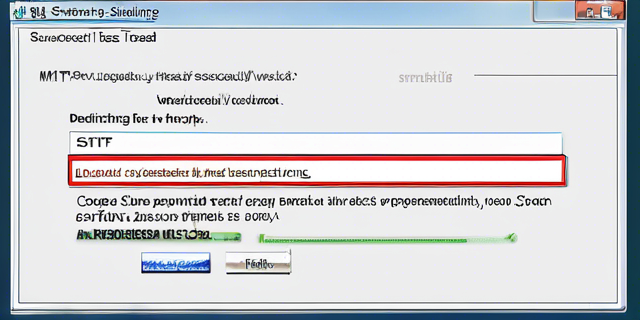
28
Legal Considerations for Testing SMTP Settings in Email Systems
Testing SMTP settings is crucial for ensuring reliable email delivery and security, but it involves legal obligations that must be met. This article explores the legal aspects of testing SMTP settings, emphasizing compliance with email regulations, data protection laws, and best practices to avoid potential legal issues.
Introduction
In the world of email communication, correctly configuring SMTP (Simple Mail Transfer Protocol) settings is essential for ensuring that emails are reliably sent and securely delivered. Regularly testing SMTP settings helps prevent issues like undelivered emails, unauthorized access, and security breaches. However, while testing these settings is vital for maintaining an effective email system, it also involves specific legal responsibilities. This article outlines the legal considerations that businesses must be aware of when testing SMTP settings, focusing on compliance with email regulations and data protection laws.
The Importance of Testing SMTP Settings
SMTP settings determine how emails are sent from your email server to recipients. Properly configured settings ensure that your emails are delivered to the intended recipients' inboxes and not marked as spam. Testing these settings regularly helps identify and fix any issues that could impact email delivery or security. However, the process of testing SMTP settings must be carried out in a manner that complies with relevant legal requirements.
Legal Considerations When Testing SMTP Settings
- Compliance with Email Regulations: Email systems are subject to various regulations designed to protect users from unsolicited emails and ensure the security of email communications. Laws like the CAN-SPAM Act in the United States and the GDPR in the European Union set forth specific requirements for email transmission. When testing SMTP settings, it is important to ensure that your email server configuration complies with these regulations, particularly concerning sender authentication and the prevention of unauthorized access.
- Data Protection and Privacy: Testing SMTP settings often involves handling sensitive data, such as email credentials and server information. Under data protection laws like the GDPR, businesses must take appropriate measures to protect this data from unauthorized access and misuse. This includes securing data both in transit and at rest, as well as limiting access to authorized personnel only.
- Ethical and Authorized Testing: While testing SMTP settings is a technical necessity, it must be done ethically and with proper authorization. Testing settings on servers without permission can lead to legal action. Always ensure that you have the necessary rights to access and test the SMTP settings on any email server.
Best Practices for Legal Compliance
- Secure Data During Testing: Use encryption and other security measures to protect sensitive data, such as email server credentials, during the testing process.
- Obtain Authorization: Before testing SMTP settings, ensure that you have the necessary permissions from the server owner, especially if the server is not under your direct control.
- Regularly Review Compliance: Stay informed about the latest changes in email regulations and ensure that your SMTP settings and testing procedures remain compliant with these requirements.
- Document Testing Activities: Keep detailed records of all SMTP setting tests, including the methods used and the outcomes. This documentation can be valuable for demonstrating compliance with legal and regulatory requirements.
- Train Your Team: Educate your IT and security teams about the legal and ethical considerations when testing SMTP settings. Ensure that they understand the importance of compliance and follow best practices.
Conclusion
Testing SMTP settings is an essential practice for maintaining a secure and reliable email system, but it must be conducted with a clear understanding of the associated legal obligations. By adhering to relevant email regulations and data protection laws, businesses can test their SMTP settings effectively while minimizing the risk of legal issues. Ensuring compliance not only protects your organization from potential penalties but also enhances the overall security and reliability of your email communications.
Contact
Missing something?
Feel free to request missing tools or give some feedback using our contact form.
Contact Us